What Can Dogs Eat?
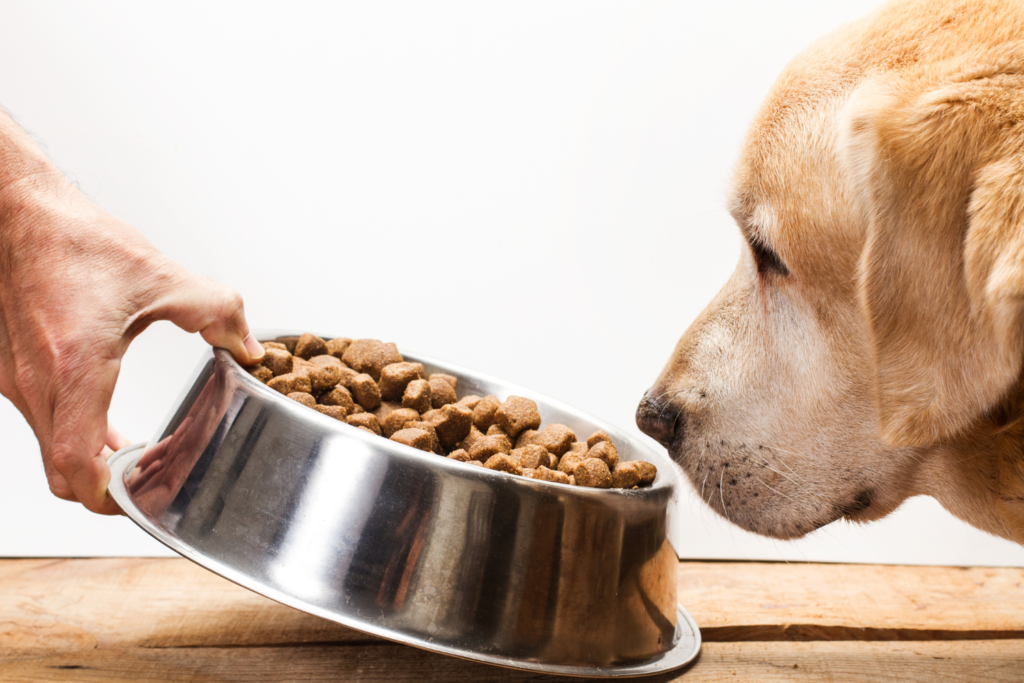
- What Fruits Can Dogs Eat
 What Fruits Can Dogs Eat: A Guide to Safe and Healthy Canine Treats When it comes to sharing our meals with our furry companions, it’s essential to know which fruits are safe and healthy for them to enjoy. Dogs are naturally curious about the food we eat, including fruits. However, not all fruits are suitable… Read more: What Fruits Can Dogs Eat
What Fruits Can Dogs Eat: A Guide to Safe and Healthy Canine Treats When it comes to sharing our meals with our furry companions, it’s essential to know which fruits are safe and healthy for them to enjoy. Dogs are naturally curious about the food we eat, including fruits. However, not all fruits are suitable… Read more: What Fruits Can Dogs Eat - Can Dogs Eat Jicama?
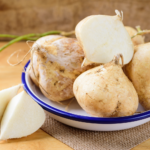 Can Dogs Eat Jicama? Exploring the Safety and Health Considerations As responsible pet owners, we strive to provide our furry friends with a nutritious and balanced diet. In our quest to offer a variety of foods, we may come across jicama, a root vegetable known for its crunchy texture and mild flavor. However, when it… Read more: Can Dogs Eat Jicama?
Can Dogs Eat Jicama? Exploring the Safety and Health Considerations As responsible pet owners, we strive to provide our furry friends with a nutritious and balanced diet. In our quest to offer a variety of foods, we may come across jicama, a root vegetable known for its crunchy texture and mild flavor. However, when it… Read more: Can Dogs Eat Jicama? - Can Dogs Eat Hummus?
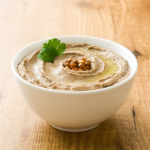 Can Dogs Eat Hummus? Exploring the Safety and Considerations As dog owners, we often want to share our favorite foods and snacks with our beloved pets. Hummus, a popular dip made from chickpeas, may be one such item that sparks curiosity. However, when it comes to our furry companions, it’s important to ensure their safety… Read more: Can Dogs Eat Hummus?
Can Dogs Eat Hummus? Exploring the Safety and Considerations As dog owners, we often want to share our favorite foods and snacks with our beloved pets. Hummus, a popular dip made from chickpeas, may be one such item that sparks curiosity. However, when it comes to our furry companions, it’s important to ensure their safety… Read more: Can Dogs Eat Hummus? - Can Dogs Eat Grits?
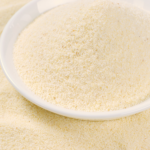 Can Dogs Eat Grits? Examining the Safety and Nutritional Value As pet owners, we strive to provide our furry companions with a well-balanced diet that meets their nutritional needs. When it comes to sharing human food with dogs, it’s essential to know which foods are safe and which ones should be avoided. Grits, a popular… Read more: Can Dogs Eat Grits?
Can Dogs Eat Grits? Examining the Safety and Nutritional Value As pet owners, we strive to provide our furry companions with a well-balanced diet that meets their nutritional needs. When it comes to sharing human food with dogs, it’s essential to know which foods are safe and which ones should be avoided. Grits, a popular… Read more: Can Dogs Eat Grits? - Can Dogs Eat Eggplant?
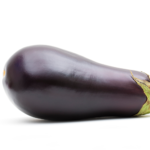 Can Dogs Eat Eggplant? Examining Safety and Health Considerations As dog owners, we are often tempted to share our meals with our furry companions. However, it’s crucial to be aware of which foods are safe for dogs and which ones should be avoided. One such food that may raise questions is eggplant. In this article,… Read more: Can Dogs Eat Eggplant?
Can Dogs Eat Eggplant? Examining Safety and Health Considerations As dog owners, we are often tempted to share our meals with our furry companions. However, it’s crucial to be aware of which foods are safe for dogs and which ones should be avoided. One such food that may raise questions is eggplant. In this article,… Read more: Can Dogs Eat Eggplant? - Can Dogs Eat Almond Butter?
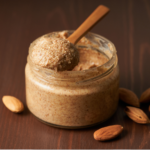 Can Dogs Eat Almond Butter? Exploring the Safety and Benefits Dogs are cherished members of our families, and as responsible pet owners, we want to ensure they receive a healthy and balanced diet. With the rise in popularity of alternative nut butters, such as almond butter, many dog owners wonder whether their furry friends can… Read more: Can Dogs Eat Almond Butter?
Can Dogs Eat Almond Butter? Exploring the Safety and Benefits Dogs are cherished members of our families, and as responsible pet owners, we want to ensure they receive a healthy and balanced diet. With the rise in popularity of alternative nut butters, such as almond butter, many dog owners wonder whether their furry friends can… Read more: Can Dogs Eat Almond Butter?
What Can Dogs Eat? A Guide to Safe and Healthy Foods for Your Furry Friend
As responsible pet owners, it’s essential to ensure that our furry companions receive a balanced and nutritious diet. While dogs have specific dietary requirements, it’s important to know which human foods are safe for them to consume. We will explore a wide range of foods that are not only safe for dogs but can also provide them with valuable nutrients. So, browse the above articles and dive into the question: “What can dogs eat?”
I. Understanding a Dog’s Dietary Needs
Before we explore the safe and healthy food options for dogs, it’s crucial to understand their nutritional requirements. A balanced diet for dogs consists of proteins, carbohydrates, fats, vitamins, and minerals. The following subheadings will discuss each of these components and highlight suitable food choices.
II. Proteins: Building Blocks of a Healthy Diet
Proteins are essential for a dog’s growth, maintenance, and repair of tissues. Excellent sources of protein for dogs include lean meats such as chicken, turkey, and beef. Cooked eggs and fish like salmon are also rich in protein and omega-3 fatty acids, promoting healthy skin and coat.
III. Carbohydrates: Fuel for Energy
Carbohydrates provide dogs with energy and fiber. Some safe options for carbohydrates include cooked rice, pasta, and oatmeal. Sweet potatoes and pumpkin are also excellent choices, packed with vitamins and dietary fiber.
IV. Fats: Essential for Vital Functions
Fats contribute to a dog’s overall health, providing energy and aiding in the absorption of fat-soluble vitamins. Foods like salmon, sardines, and flaxseed oil are excellent sources of omega-3 fatty acids, which support brain function and reduce inflammation.
V. Vitamins: Vital Nutrients for Well-being
Vitamins play a crucial role in a dog’s overall health. Fruits and vegetables such as carrots, blueberries, and apples are rich in vitamins A, C, and E. Leafy greens like spinach and kale are packed with essential vitamins and minerals, promoting a strong immune system.
VI. Minerals: Promoting Strong Bones and Teeth
Minerals, including calcium, phosphorus, and magnesium, are vital for a dog’s skeletal health. Foods like plain yogurt, cottage cheese, and broccoli provide calcium, while lean meats and legumes offer phosphorus. Additionally, adding a pinch of iodized salt to their food can provide necessary trace minerals.
VII. Dog-Safe Fruits and Vegetables
When it comes to fruits and vegetables, it’s important to select dog-friendly options. Dogs can enjoy blueberries, strawberries, bananas, and watermelon in moderation. However, avoid feeding them grapes, raisins, onions, garlic, and avocados, as these can be harmful.
VIII. Healthy Snack Options
Dogs love treats, but not all human snacks are safe for them. Instead of sharing your own snacks, consider providing your furry friend with dog-specific treats made from wholesome ingredients. Look for treats that are low in salt, sugar, and artificial additives.
IX. Foods to Avoid
While it’s crucial to know what dogs can eat, it’s equally important to be aware of foods that are toxic to them. Avoid giving your dog chocolate, caffeine, alcohol, onions, garlic, grapes, raisins, and foods high in salt and sugar. Additionally, certain spices like onion powder and nutmeg should also be avoided.
X. Consulting with a Veterinarian
Every dog is unique, and individual dietary requirements may vary based on breed, age, and health conditions. It’s always a good idea to consult with a veterinarian before making any significant changes to your dog’s diet. They can provide tailored advice